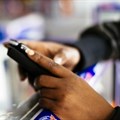Big data ushers South Africans into financial inclusion

According to the Banking Association of South Africa, financial inclusion means accessing and using a broad range of affordable, quality financial services and products in a manner that’s convenient and gives sufficient protection to the client.
While a 2015 FinScope report stated that 77% of South African adults are currently banked, having a bank account is only the starting point for true inclusion. For South Africans to truly be able to benefit from participation in the financial systems of the country, they need to be able to participate in further services, such as insurance as well.
Big data, the enormous volume of data generated by people moving through modern existence, has the potential to support them on this journey. This is because the picture that it paints of the underbanked market allows for products and services to be developed for this market.
Benefits
Some of the benefits that could be delivered to consumers in this space include credit for consumers who had to rely on sometimes exploitative informal credit in the past, the issuance of identity or other government documents for those who lack them, the design of new products that fit the actual needs and realities of the customers, and the ability for financial services providers to enter new markets, increasing competition on price, quality and innovation.
But where can this big data be captured from a largely unbanked population as a starting point?
“Through loyalty and reward programmes from retailers, big data is being harvested from these traditionally unbanked consumer groups. Retailers have also made it possible for these customers to settle most of their major accounts in store, thus eliminating the further need for bank accounts. For these reasons, retailer groups hold a great source of data for just about any sort of consumer in South Africa, be it banked or unbanked,” says Sonja Visser, CEO of African Unity Life.
She says that some of the useful insights that can be derived from such data have been;
South African consumers are under more and more financial pressure and cutting back on any unnecessary monthly costs, this includes banking fees.
In a third world economy, the centre point for transacting remains the traditional (physical in store) retail point and this is thus the best place to gather data on the consumer;
The rise of fintech and other solutions has made living without a traditional bank account easier in South Africa (a good example is the eWallet solution from FNB), and;
The increasing number of smartphone users in South Africa creates an opportunity for fintech companies and banks to reach and cater for the unbanked consumer.
From these insights, it is possible for financial services providers, including insurers to develop products that serve this traditionally financially excluded market.
“Traditionally we see premium customers being offered value-added services to existing products in the shape of added benefits. There is also scope to offer similar services and benefits to customers in the lower- to middle-income market, to enable those who need it most to also reap the rewards for being financially active in the South African economy,” says Visser.
She adds that through their participation in such programmes, insurers can learn more about their customers and their lifestyles and focus on further product development to support them as they become increasingly financially included.
One such example is the partnership between AUL and Spazapp, the developers of an app that enables spaza shop owners to order and track discounted brands and sell services like airtime, to provide mobile sales of funeral cover to customers. The funeral cover can be topped up monthly or bought in advance.
The pilot was launched in November 2017 in Umlazi KwaZulu-Natal to allow customers to purchase funeral cover on a month-to-month basis from a mobile vendor at selected local spaza shops. Area residents found that buying funeral cover was as easy as a trip to their local spaza, salon, car wash or kota store – just like they could buy electricity credits or lotto tickets from a mobile vendor. One hundred existing Spazapp vendors participated in the programme. Twenty supportive service agents, known as “Sparks” received in-app product and service training on how to sell funeral insurance and manage the sales process.
“This type of innovation makes it possible to deliver life insurance to customers who desperately need it for the peace of mind and financially security it brings – if something were to happen to them, their families would have some financial support,” says Visser. “A market that has traditionally struggled to access this kind of cover can now purchase it easily and efficiently, bringing the customer into the financial inclusion fold.”
As more and more people are financially included, more and more tailor-made services, products and innovations can be offered to this market – creating a snowball effect of inclusion that will ultimately transform these lower-income groups into active participants in the economy.
























